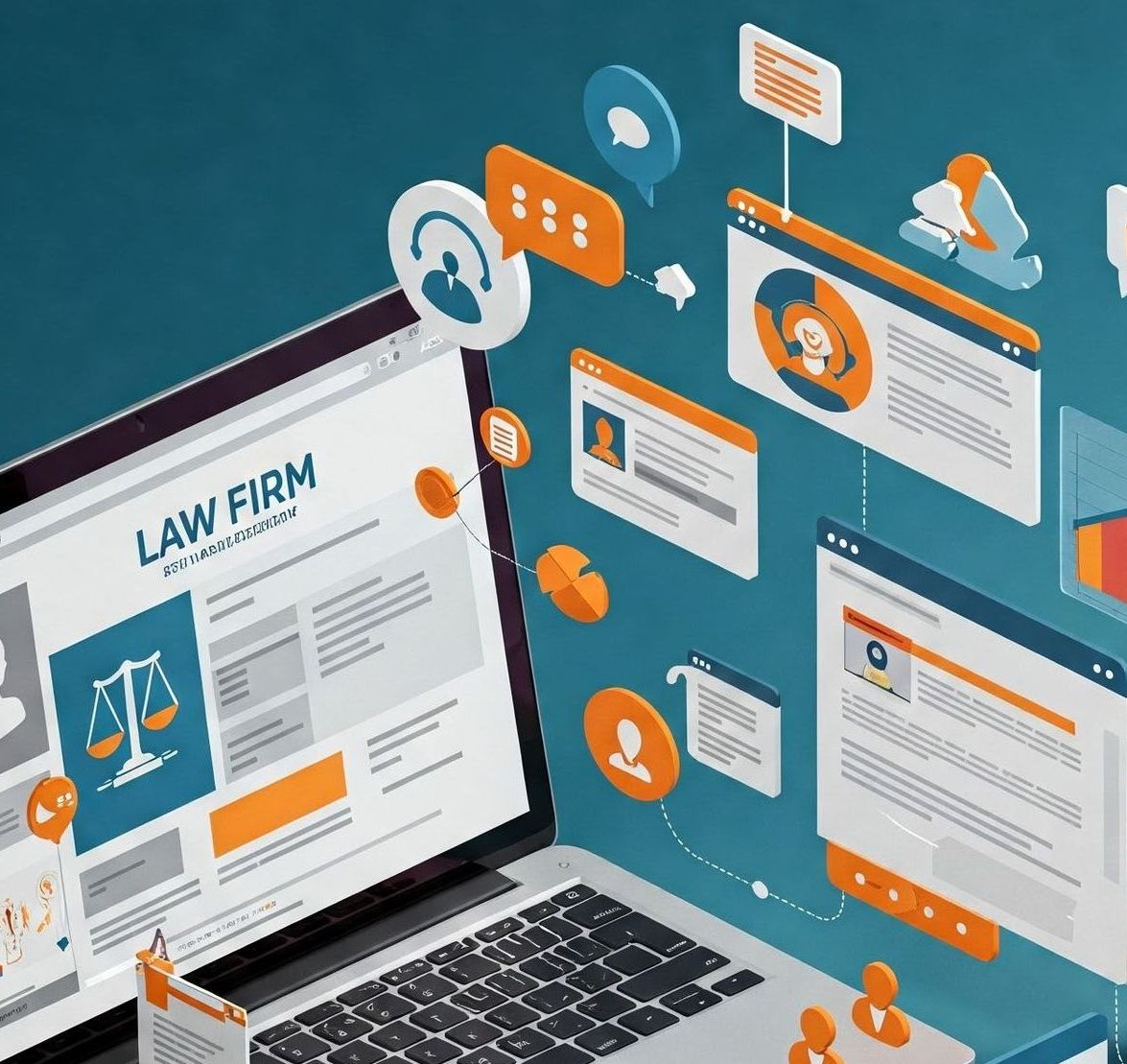Microsoft 365: A Lawyer’s Guide to Subscription Plans and Document Management
Most lawyers use Microsoft 365 (MS 365), but with all the renaming and frequent upgrades, it can be tricky to figure out which subscription is best for your practice and how to make the most of features you might not have tried yet.
Picking the right subscription plan is key to meeting your productivity, security, and compliance needs. Plus, knowing the differences between OneDrive and SharePoint can help you manage documents more effectively.
Microsoft 365 Subscription Plans
Technology is crucial now for lawyers' productivity, data security, and collaboration. MS 365 offers various subscription plans suited for small law firms, each with its own features and benefits. You will currently pay 16% less per month if you choose to pay annually rather than monthly. Prices quoted here are for paying annually.
🧿 Business 365 Basic Plan
The MS 365 Business Basic plan is the most affordable option, providing web and mobile versions of Microsoft Office applications. It includes Microsoft Teams, OneDrive, and SharePoint for file storage and collaboration. However, it doesn't include desktop versions of Office apps, making it less suitable for intensive document work. This plan also lacks the important security measures offered by other plans. Pricing: £4.60 per user/month.
🧿 Business 365 Standard Plan
The MS 365 Business Standard plan offers desktop versions of Office applications – like Word, Excel, and Outlook – along with all the features of the Business Basic plan. This plan provides 1 terabyte (1 TB) of OneDrive storage per user, which is crucial for document management and collaboration. It also includes Microsoft Teams for communication, SharePoint for team collaboration, and Exchange for email hosting. The Business Standard plan is useful for small firms that need comprehensive tools for productivity, but it lacks the advanced security features found in the higher-tier plans. Pricing: £9.60 per user/month.
🧿 Business 365 Premium Plan
The MS 365 Business Premium plan is highly recommended for most lawyers. It includes desktop versions of key Office applications – such as Word, Excel, and Outlook, along with 1 TB of OneDrive storage – and advanced security features and device management. Enhanced features, like MS Defender for Office 365 and MS Intune, ensure robust data security, which is crucial for law firms handling sensitive client information. This plan is ideal for small firms seeking comprehensive tools and enhanced security. Pricing: £16.90 per user/month.
🧿 365 E3 Plan
The MS 365 E3 plan is suitable for firms with stringent compliance and security needs. It builds on the Business Premium plan by adding additional compliance tools, advanced security features, and device management capabilities meant for larger businesses with over 300 employees. It requires more IT knowledge or IT specialists to set up and manage compared to lower-tier plans. Pricing: £29 per user/month.
🧿 Personal and Family Plans
The MS 365 Personal and Family plans are not suitable for law firms. These plans are designed for individual and family use, offering basic features that do not meet the professional requirements of a law firm. They lack the advanced security measures, business services, and compliance tools that are essential for legal practices.
Choosing the right MS 365 subscription should be based on the specific needs of your law firm. For most small firms, the Business Premium plan offers a comprehensive set of tools and enhanced security at a reasonable cost. Solo attorneys may find the Business Standard plan sufficient for their needs. Firms with higher security and compliance demands may find the E3 plan more appropriate, while the Personal and Family plans should be avoided for professional use.
🧿 Adding 365 Copilot for Built in AI
Microsoft 365 Copilot is an AI-powered assistant integrated into the Microsoft 365 suite, offering significant productivity enhancements for legal professionals. It assists with drafting documents in Word, summarising emails in Outlook, and managing collaborative workflows in Teams.
For example, Copilot can automate repetitive tasks, provide intelligent suggestions, and streamline document formatting to meet legal standards. There is still scepticism about how capable Copilot is right now, but it will get there and become a key tool for lawyers. Exploring and planning how best to implement it should be a priority right now – particularly for mid-size and smaller firms.
These features allow lawyers to focus on high-value tasks while improving efficiency across their workflows. Pricing reflects its advanced AI capabilities and seamless integration with Microsoft tools, making it a valuable investment for law firms aiming to enhance productivity and maintain compliance with industry standards. Pricing: 23.10 per user/month.
💙 OneDrive vs. 💚 SharePoint: Key Differences and Use Cases
For legal professionals, understanding the differences between OneDrive and SharePoint is key to effective document management and collaboration.
Ownership and Accessibility
💙 OneDrive is designed for personal storage and file sharing, functioning as each user’s personal online filing cabinet. Files in OneDrive are owned by the individual user and can be shared with others for specific tasks. In contrast, SharePoint stores files in a shared document library that is accessible to a group, a department, or the entire firm, with ownership belonging to the organisation rather than an individual.
💙 OneDrive is ideal for individual workspaces, where drafts, notes, and personal documents are saved before they are finalised and shared. This platform allows easy file access across multiple devices, supporting a mobile and flexible work style. When a document is ready to be reviewed or collaborated on, it can be shared with specific individuals who can then edit or comment on the file.
💚 SharePoint, on the other hand, is built to manage and organise files in a collaborative environment. It provides structured storage by categorising documents according to specific cases, clients, or projects, ensuring everyone on the team has access to the most up-to-date information. SharePoint supports document storage and integrates workflows that help automate processes, track progress, and manage tasks within the legal team.
💚SharePoint offers advanced document management features – such as metadata tagging, custom views, and access permissions – which help organise large volumes of documents. This is useful for law firms that deal with extensive documentation and require robust search functionalities to retrieve information quickly and efficiently. Integrating SharePoint with Microsoft Teams enhances its collaborative capabilities, allowing teams to communicate in real time, schedule meetings, and manage projects without switching platforms. This seamless integration streamlines workflow and boosts productivity by providing a centralised hub for all communication and document management needs.
While OneDrive serves as an excellent tool for personal document management and initial drafting, 💚 SharePoint stands out as the preferred solution for collaboration, sophisticated document organisation, and enhanced team productivity within legal practices.
Scope for Sharing Documents
💙 OneDrive is most suitable for storing personal work files, drafting documents before sharing them with a team or client, and securely sharing a single document or requesting a file from someone. 💚 SharePoint excels in matter-centric storage by organising documents according to cases, clients, or legal projects, facilitating team collaboration on shared documents like court filings, contracts, and pleadings.
Collaboration Style
💙 OneDrive is ideal for one-to-one or small-group collaboration, while 💚 SharePoint supports large-scale collaboration. SharePoint enables firms to create intranet sites for document management, making collaboration between attorneys, paralegals, and administrative staff more efficient.
Document Versioning and Co-Authoring
Both OneDrive and SharePoint offer document versioning, allowing users to track changes and restore previous versions. However, 💚 SharePoint provides more advanced controls. Additionally, both platforms support co-authoring in Word, Excel, and PowerPoint, with SharePoint offering deeper integration with Teams.
Integration With Teams
While OneDrive has limited integration with Teams, 💚 SharePoint is integrated, allowing seamless transitions between tasks and reducing the need for multiple applications. This integration also extends to Outlook, enabling streamlined scheduling and email communication.
When to Use OneDrive vs. SharePoint for Legal Work
💚 Use SharePoint for structured team and firm-level collaboration, finalised document libraries, matter management, and knowledge sharing such as.
✔️ Case or Matter Management:
- Create separate document libraries or SharePoint sites for each matter or case.
- Centralize pleadings, briefs, client communications, and filings.
- Manage deadlines, calendars, tasks, and events relevant to each case.
✔️ Client Portal (External Access): Provide controlled access to clients for securely viewing documents, status updates, invoices, and case progress.
✔️ Knowledge Management:
- Store templates (contracts, briefs, legal research) centrally for easy retrieval.
- Share internal training, continuing legal education (CLE) resources, policies, and best practices.
✔️ Firm-wide Policies and Procedures: HR policies, firm manuals, guidelines, employee onboarding material, and compliance documentation.
✔️ Collaboration & Project Management:
- Version-controlled document editing, internal discussions, feedback loops, document check-in/check-out to prevent accidental overwrites.
- Project planning (e.g., internal audits, mergers, litigation strategy planning).
💙 Use OneDrive for individual productivity, personal drafts, and temporary document storage and sharing.
✔️ Personal Document Drafts and Research: Draft legal memos, initial case research, private annotations, and personal notes before documents are finalised and moved to a SharePoint library.
✔️ Short-Term Sharing (Ad hoc Document Sharing): Temporarily share a document with colleagues for quick review or edits before formalisation.
✔️ Backup and Mobility: Easily accessible files from any location or device—helpful for remote work, meetings, and travel.
✔️
Confidential Individual Files: Personal career development documents, appraisals, private notes, performance feedback, and individual professional documentation.
Conclusion
Selecting the right Microsoft 365 plan and mastering document management is essential for any law firm. Whether you choose the Business Standard plan for its tools, the Business Premium plan for its enhanced security features, or the E3 plan for its large law firm capabilities, making an informed choice will ensure your firm’s productivity and security.
💙 Use OneDrive for personal storage and 💚 SharePoint for collaborative efforts to keep your documents organised and accessible. By doing so, you can ensure that your firm’s digital infrastructure is both efficient and secure.
The Microsoft 365 suite also has a number of ‘specialised’ applications that your firm may be able to put to good use. Microsoft Visio for process mapping and improvement, although you might also be tempted by other options like Lucid, which we use too.
As with all software applications, the benefits realised are proportional to how much you engage with these products – many firms could gain much more value from by doing more with their investment in Microsoft 365.
For more guidance on selecting the right options for your law firm get in touch. We can give you a comprehensive evaluation of options that will be the best fit for your particular practice, systems and needs.
📞 07778 572420
📧 fmanning@cartonconsultants.com
Note: Prices valid as of 22nd April 2025










